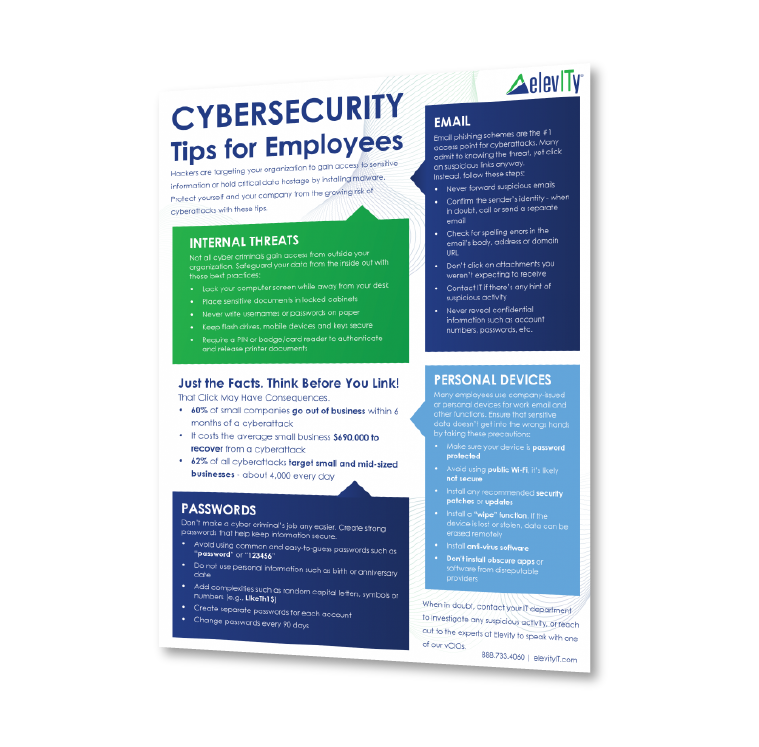In recent history, the prospect of artificial intelligence was only a far-fetched idea. Today, with the advent of cognitive computing, engineers and software developers are bridging the gap between the way a computer works and the way a human brain thinks. The result is interactive and intuitive computing that improves over time and can aid users in expanding their capabilities, increasing knowledge, and making informed decisions.
The following article expounds on the advances and opportunities of cognitive computing. It originally appeared in the UBM February 2016 issue and, because of it’s relevance and value, is being shared here once again.
The Promise of Cognitive Computing
Over the last century, technology has transformed our lives in amazing ways. It has revolutionized nearly every industry, from finance and medicine, to retail, hospitality, and entertainment. It has reshaped transportation and even taken us to the far reaches of our solar system. It has put a wealth of knowledge at our fingertips and made it possible to communicate instantly with anyone, anywhere on the planet.
In the beginning, computers were little more than adding machines. This was the first era of computing — the tabulating era. Computers from this time performed simple tasks, such as collecting information and basic arithmetic.
With the advent of the PC, computing became available to a much wider audience, and we entered the second era of computing — the programmable era. During this time, computers became smaller and more powerful, but they were still bound by rigid rules and decision-tree logic.
We are now entering the third era of computing — the cognitive era — and it will again fundamentally change the way humans work with machines.
This new type of technology allows people to interact with computers using natural language. In the past, users needed to code or format text in a way that the system would understand. For example, if they wanted to conduct a search, they had to input keywords. Natural language processing allows people to ask questions or speak in sentences when interacting with systems — the same way they would talk to another human being.
In addition, cognitive computing systems use machine learning to get smarter over time — just the way humans do. Unlike older technology, these new cognitive computing systems can analyze vast quantities of information and generate reasoned arguments and valuable insights.
Cognitive computing offers the opportunity to solve some of the biggest challenges humanity faces today. It’s helping doctors solve health crises across the globe. It’s allowing scientists to synthesize existing research and develop new breakthroughs. It’s assisting governments and nonprofits with planning for and response to disasters. And, it’s enabling businesses in nearly every industry to better serve their customers.
Smart entrepreneurs are already finding ways to take advantage of this opportunity. They are embedding cognitive capabilities into their own technology to provide new insights, functionality, and value for their clients.
The Problem: Information Overload
Data is growing at an astounding rate. Every day, Internet users send 196.4 billion emails, more than a billion people are active on Facebook, and Twitter users post about 500 million tweets. Every month, people post 52.8 million new posts on WordPress, and every minute, users upload more than 400 hours of video to YouTube. According to researchers at IDC, the digital systems on Earth now store more than 4.4 zettabytes of information. For purposes of comparison, one zettabyte is roughly the equivalent of the data that could be stored on 250 billion DVDs. And by 2020, there will likely be more than 44 zettabytes of digital information in existence.
A human being could never consume all that information. Only a computer could be reliable enough, consistent enough, and powerful enough to absorb that much data. That is where cognitive computing comes in — and that is where startups are finding new opportunities.
With so much information readily available to us, the challenge becomes how to extract, analyze, and connect the dots between all of the available data while the data pool continues to grow exponentially. Numerous studies show that information overload leads to difficulties in decision-making, loss of job satisfaction, damaged personal relationships, and damaged health.
Information overload can also undermine business success. Organizations have a glut of data about their systems, their competition, and the market as a whole. No individual could possibly process all this information and, as a result, business decisions are often made without taking into account all of the available information.
Some people have looked for ways to solve these problems using traditional computing systems. However, while traditional computers are very good at analyzing the kind of structured data you might find in databases or spreadsheets, most of the data available to us is unstructured — in other words, it is data such as emails or social posts that does not reside in the traditional rows and columns of databases.
For example, consider the vast amount of medical information doctors need to absorb to stay current in their fields. It’s simply not possible to keep up. Traditional computing systems can offer keyword searches and suggestions on popular articles, but ultimately fall short in delivering a thorough analysis. Cognitive computing deciphers unstructured data to provide evidence-based treatment options to help improve patient outcomes.
A new generation of startups is using cognitive technology to turn the problem of information overload into a business opportunity.
The Opportunity: Providing Insights
Both at home and at work, people are looking for technological solutions that can help them deal with their information overload. In some cases, the need is very serious — such as the example of the doctor having trouble keeping up with medical literature. Cognitive computing can help physicians stay up to date on the latest research. Much as a colleague would, it answers their questions about symptoms and possible treatments, and it allows them to spend more time with patients.
In other cases, the need is a little more mundane — like automatically recommending a good movie to watch based on a user’s past preferences, assisting with travel plans, or helping with other everyday tasks. But in both types of situations, people need tools that can help them make better decisions. They want technology to sort out what is relevant and what isn’t, and to give them sound, evidence-based advice.
Within organizations, workers need tools that can help them generate insights, make better decisions, and develop expertise faster. Cognitive computing meets this need by sorting through vast quantities of structured and unstructured data and providing specific, personalized recommendations that are backed by solid evidence. And the system continues to learn and get better over time.
The Solution: Businesses Built on Cognitive Computing
To make sense of ever-growing data stores and make informed decisions, individuals and organizations need new solutions that are built on cognitive computing.
New businesses are emerging today to fill that need. Using machine-learning technology, these companies are creating next-generation applications that enable individuals to make better decisions in all aspects of their personal and professional lives, from health to finance to fantasy football.
Cognitive technology, such as IBM Watson, is available today and empowers startups to build state-of-the-art solutions that help their clients make better decisions, find hidden insights, and get answers to questions faster than ever before.
The Opportunity for Startups
We are at the forefront of cognitive computing technology, which means forward-thinking innovators have the opportunity to get in on the ground floor. Today, cognitive computing is helping entrepreneurs rapidly innovate, create prototypes, and quickly bring products to market.
Because cognitive technology improves with time, early adopters have a bright future. Machine learning will allow their products and services to analyze increasing amounts of data and provide better insights to their customers. And because this technology is rapidly advancing, they’ll have the ability to add new features and capabilities to their applications over time. It’s an opportunity that could be very lucrative in the short term and even more valuable in years to come.
Keeping up with the latest technology is a challenge. Knowing what systems and programs are best for your unique business situation can help you provide advanced services and products and, ultimately, outpace competitors. At the Gordon Flesch Company, we’re on the forefront of cutting-edge technology and can provide solutions for all your computing needs. Contact us today for a free consultation.









